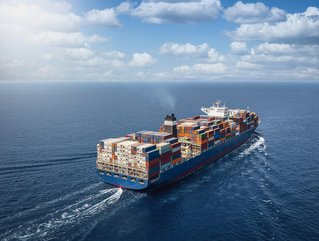Averda and WasteFuel to turn waste into low-carbon fuel

Averda, the end-to-end waste management, treatment and recycling company operating in emerging markets, and WasteFuel, a developer of bio-refineries focused on converting municipal solid waste into low-carbon fuels, have announced a partnership to develop the first commercial-scale municipal waste to renewable methanol plant in the Middle East.
Renewable fuel to help shipping companies
Making the announcement during the COP27 Climate Change conference, the entities said that the location for the first plant is being researched, and that it is expected to be in Jebel Ali, UAE. They added that the plant will produce renewable methanol for shipping from unrecycled waste currently being collected and disposed of by Averda.
This renewable fuel would help shipping companies achieve up to 90% reductions in CO2 emissions and other greenhouse gases and pollutants compared to conventional fuels, it added.
“This partnership will help to address climate change by diverting waste from landfill to produce renewable fuels,” Malek Sukkar, Chief Executive Officer of Averda. “Averda is proud to partner with WasteFuel, another member of SMI, to bring this innovative and sustainable solution to the region, and to continue our journey towards a world without waste.”
Decarbonising the shipping industry
The world generates 2.01bn tonnes of municipal solid waste annually and global waste is expected to grow to 3.40bn tonnes by 2050, more than double population growth over the same period. Turning waste into renewable fuels is possible, the statement pointed out, adding that renewable methanol for shipping is crucial in global efforts to decarbonise.
Large container ships currently account for approximately 20% of all marine fuel demand and researchers warn that without greater efforts to decarbonise shipping, the industry could account for 10% of all global emissions by 2050.
“Addressing the climate emergency requires an exponential increase in renewable fuel supply. The Middle East, specifically Jebel Ali, is considered a gateway between the Western Hemisphere and the Far East. As WasteFuel works to produce green methanol to decarbonise shipping at scale, the opportunity to develop a biorefinery in partnership with Averda in the Middle East was an exciting and logical next step,” added Trevor Neilson, Co-founder, Chairman and CEO, WasteFuel.
Neilson added that his company uses proven technologies to address the climate emergency and revolutionise mobility. By converting municipal and agricultural waste into low-carbon fuels including green methanol, renewable natural gas and sustainable aviation fuel, WasteFuel aims to contribute to global efforts to decarbonise, he added.
WasteFuel currently has several projects in development globally. These include a project in South America to produce green methanol, a project in the Philippines to produce sustainable aviation fuel and methanol, and projects to produce renewable natural gas and green methanol in the Americas and Asia.






